Rely on our fast and efficient methods for maritime cargo shipping.
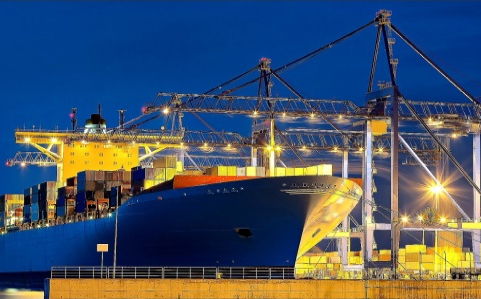
Sea transport has been the largest carrier of freight throughout recorded history. Although the importance of sea travel for passengers has decreased due to aviation, it is effective for short trips and pleasure cruises. Transport by water is cheaper than transport by air, despite fluctuating exchange rates and CAF charges to account for such.
Ship transport can be over any distance by boat, ship, sailboat or barge, over oceans and lakes, through canals or along rivers. Shipping may be for commerce, recreation or the military purpose. Virtually any material can be moved by water; however, water transport becomes impractical when material delivery is highly time-critical.
Containerization revolutionized ship transport starting in the 1970s. “General cargo” includes goods packaged in boxes, cases, pallets, and barrels. When a cargo is carried in more than one mode, it is intermodal or co-modal.
- Global connection.
- Partnership with the principals shipping lines.
- Covering al, Brazilian Ports.
-
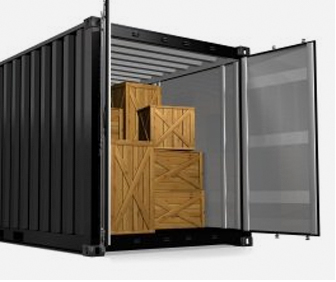
Full Container Load The FCL definition seems to imply that you have to fill the container totally, but in fact, this is not the case – you are renting its exclusive use but if you cannot use every square meter it may still be the cheapest method. Full Container Load (FCL), as the name implies, is the standard form of shipping freight for those who have a large amount of goods to send With a Full Container Load, your shipment will be the only cargo in the container.
• Shipment expertize at your service.
• Consulting in the selection of the containers.
• Stuffing the cargo if it is required. -
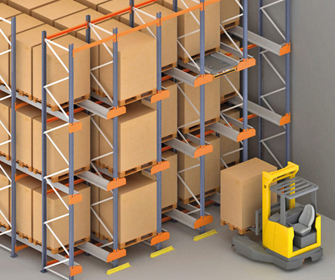
Less Container Load Shipping term for cargo that is insufficient either in quantity or in weight to qualify for the freight rates applied to a standard shipping container. A term used to describe the transportation of small ocean freight shipments not requiring the full capacity of an ocean container – Usually less than 20 CBM (cubic meters). A freight forwarder may create a “Consolidation” by putting together multiple LCL shipments.
• Cargo Consolidator (NVOCC).
• Transport of the breakbulk cargo under Custom Regime from 9 Brazilian States till our HUB in Santos and vice versa. -
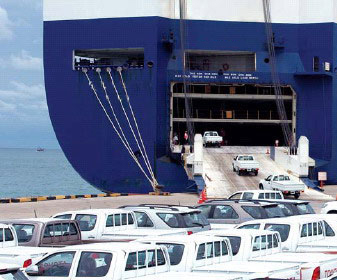
Ro Ro Roll-on/roll-off (RORO or ro-ro) ships are vessels designed to carry wheeled cargo, such as cars, trucks, semi-trailer trucks, trailers, and railroad cars, that are driven on and off the ship on their own wheels or using a platform vehicle, such as a self-propelled modular transporter. This is in contrast to lift-on/lift-off (Lo Lo) vessels, which use a crane to load and unload cargo.
• Operating with First Class RO RO Lines.
• Specialized in America and Mediterranean Cost of Europe. -
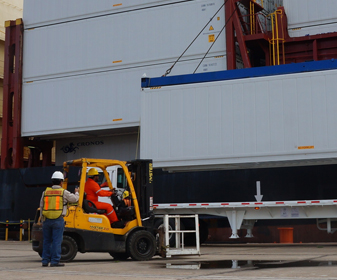
Temperature Controlled Cargo and Cargo Refrigerated A refrigerated container or reefer is an intermodal container (shipping container) used in intermodal freight transport that is refrigerated for the transportation of temperature sensitive cargo. While a reefer will have an integral refrigeration unit, they rely on external power, from electrical power points (“reefer points”) at a land based site, a container ship or on quay. When being transported over the road on a trailer or over rail wagon, they can be powered from diesel powered generators ("gen sets") which attach to the container whilst on road journeys. Refrigerated containers are capable of controlling temperature ranging from -30 Cº, -40Cº, -65Cº up to 30Cº, 40Cº.
• 4 years of experience transporting reefers International outbound traffics from Brasil. -

Project Cargo Project cargo is a term used to broadly describe the national or international transportation of large, heavy, high value or a critical (to the project they are intended for) pieces of equipment. Also commonly referred to as Heavy lift, this includes shipments made of various components which need disassembly for shipment and reassembly after delivery.
• Design of the best way to accommodate the Out of Gauge Cargo (OOG).
• Consulting in Cargo Lashing and Trimming.